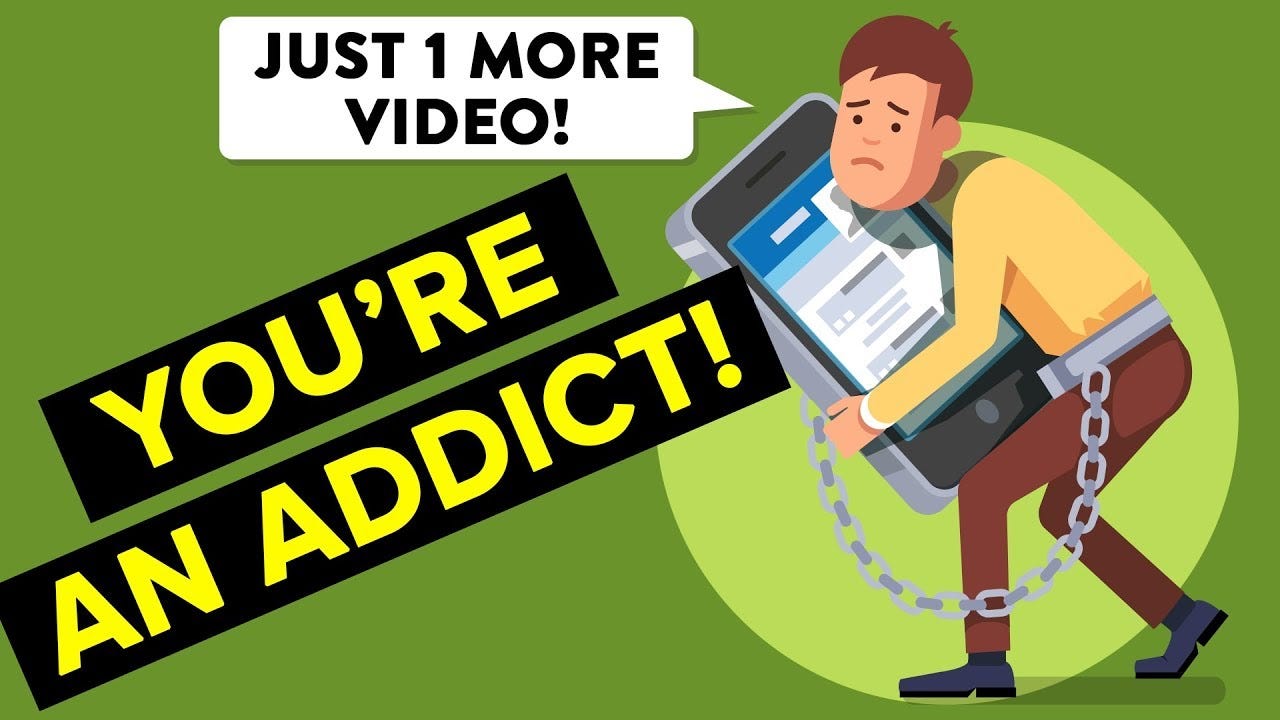In today’s always-on digital world, notifications have become the background noise of our lives. Whether it’s a ping from WhatsApp, a vibration from Instagram, or a badge from your favorite news app, these constant interruptions are more than just digital nudges — they’re shaping our attention, habits, and mental health.
But here’s the big question: Are we addicted to notifications? And if so, how did we get here — and what can we do about it?
Let’s take a deep dive into the world of notifications, the psychology behind them, and how we can regain control of our digital lives.
The Rise of the Notification Era
It started innocently enough — a simple alert for a new text message or email. But as apps exploded and platforms competed for our attention, notifications multiplied. Now, an average smartphone user receives between 50 to 80 notifications per day — and checks their phone over 150 times daily.
Every beep, buzz, or badge is a bid for your attention. And more often than not, it works.
The Science of Notification Addiction
Notifications aren’t just convenient — they’re designed to be irresistible. Developers use behavioral psychology to ensure we stay engaged. Here’s how they hook us:
1. The Dopamine Hit
Every time you get a notification — especially a like, comment, or message — your brain releases dopamine, the “feel-good” neurotransmitter. This creates a feedback loop that encourages you to check your phone more often.
2. Variable Rewards
Much like slot machines, the timing and content of notifications are unpredictable. This random reward system keeps us compulsively checking for the next dopamine hit.
3. Fear of Missing Out (FOMO)
Notifications tap into our fear of being left out. Whether it’s a trending tweet or a message from a friend, missing something can trigger anxiety — pushing us to stay constantly connected.
The Impact on Daily Life
Constant notifications don’t just interrupt our tasks — they reprogram our behavior. Here’s what the research (and real life) says:
• Decreased Focus & Productivity
A study from the University of California Irvine found it takes an average of 23 minutes to refocus after a single interruption. Multiply that by dozens of notifications, and it’s no wonder we feel mentally scattered.
• Increased Anxiety
Being always “on call” creates a baseline level of stress. Phantom vibrations (feeling your phone buzz when it hasn’t) are now a common psychological phenomenon linked to notification anxiety.
• Sleep Disruption
Late-night alerts or even just having your phone nearby can disrupt sleep patterns, reducing both quality and quantity of rest.
Social & Emotional Effects
Notifications also affect our relationships and sense of presence.
- Divided attention: Constant checking during conversations signals disinterest and damages interpersonal connections.
- Validation-seeking: Likes, hearts, and replies become external validators of our worth — especially harmful for teens and young adults.
- Burnout: Feeling pressured to respond immediately to every ping creates emotional fatigue and digital burnout.
Are We Really “Addicted”?
While not officially classified as an addiction in the clinical sense, notification addiction shares many traits with behavioral addictions, including:
- Cravings: Feeling compelled to check your phone.
- Tolerance: Needing more notifications to feel engaged.
- Withdrawal: Feeling anxious or irritable without your phone.
- Interference: Negative impact on work, sleep, or relationships.
If it walks like an addiction and quacks like an addiction — it just might be.
How to Break the Notification Loop
The good news? You can take back control. Here are actionable strategies to reduce dependency on notifications and reclaim your time and attention:
1. Audit Your Notifications
Go through your settings and disable non-essential alerts. Ask yourself: Do I really need to know this in real time?
2. Batch Your Attention
Instead of responding to every buzz, set specific times to check messages and emails. This helps retrain your brain for focus.
3. Use “Do Not Disturb” Modes
Most phones have DND settings that silence all alerts during specific hours (like at night or while working). Use them liberally.
4. Move Distracting Apps Off Your Home Screen
Out of sight, out of mind. Hiding or uninstalling social media and news apps can reduce the temptation to check constantly.
5. Wear a Watch
You’d be amazed how much less you check your phone when you’re not relying on it to tell time.
6. Mindfulness Practice
Meditation and mindfulness help you become more aware of your impulses — including the urge to check your phone. Apps like Headspace and Calm can help you get started (ironically, they’re good notifications!).
The Joy of Silence: Benefits of Cutting Back
Reducing your notifications doesn’t mean disconnecting entirely — it means reclaiming your attention. The benefits of cutting back are immediate and powerful:
- Improved concentration
- Better sleep
- Reduced anxiety
- More meaningful relationships
- Greater sense of calm
In a world that constantly screams for your attention, silence is a superpower.
Are Tech Companies to Blame?
To some degree, yes. Platforms are built to maximize engagement, not well-being. But change is coming. Tech companies like Apple and Google have begun introducing digital wellbeing tools, including:
- Screen Time monitoring
- Focus modes
- Notification summaries
Still, the ultimate responsibility lies with us, the users. Awareness is the first step to change.
Conclusion
So, are we addicted to notifications? In many ways, yes — and not by accident. Notifications are engineered to hijack our attention, and we’ve grown used to their constant presence in our lives.
But you’re not powerless. By being more intentional, setting boundaries, and redesigning your digital habits, you can break free from the notification trap and live with more clarity, calm, and control.
In the end, your attention is one of your most valuable assets. Don’t let it be hijacked by every ping and buzz. Take it back — one notification at a time.




